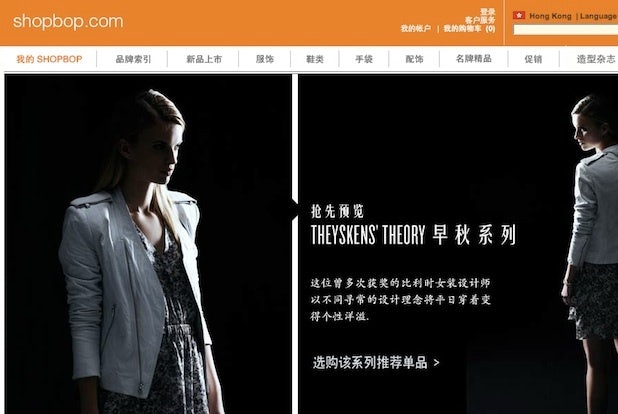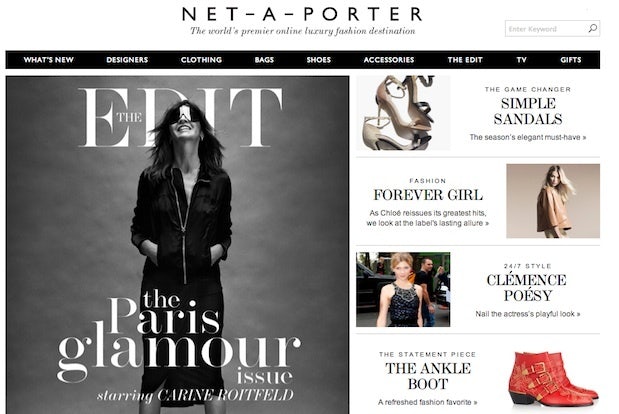Chinese-Language Site To Launch This Month#

As Jing Daily noted last week, the wildly successful Richemont-owned British luxury e-tailer
Net-A-Porter#
is set to launch a Chinese-language version later this month, part of a stronger effort to tap the Asian market that will also see the company open a Hong Kong distribution center. Though Net-A-Porter already has a great deal of operational experience in the Chinese e-tail business, via its one-year-old Outnet.cn site and the leadership of Asia senior vice president Adrienne Ma, the road ahead won't be easy in China -- and not just because of stiff competition from local and international competitors.
According to available information in advance of the official Chinese site launch, Net-A-Porter's new local version will not accept payment in renminbi, nor will it accept other popular Chinese payment methods like UnionPay or cash-on-delivery. To shop on the site, Chinese consumers must have overseas accounts or accounts in U.S. dollars at mainland banks. Though the site does offer one perk beloved by Chinese luxury e-tail devotees -- free shipping -- competitors like Neiman Marcus and Yoox offer a range of payment options for Chinese shoppers.
As the Chinese business site "Great Wisdom" (大智慧阿思达克通讯社) writes this week, Net-A-Porter's China expansion efforts illustrate the complexities of the country's labyrinthine tax policy (translation by Jing Daily team):
Net-A-Porter plans to launch an official Chinese website this month, but its insurmountable customs tariff barriers are "disappointing" Chinese consumers. We were informed that the Chinese website only supports payment via foreign currency credit cards. As business consultant Lu Zhenwang (鲁振旺) explains, the only new thing about Net-A-Porter's Chinese site is the language option -- prices of items don't include customs tariffs.
"So it won't do much to improve sales in mainland China. After all, very few people [in mainland China] hold international credit cards," said Lu Zhenwang.
Lu says the reason why Net-A-Porter's Chinese website cannot settle sales in RMB is because the price of goods is not included in the tariff price. Mainland Chinese customers have to pay the customs clearance costs themselves.
The Italian luxury discount e-commerce site Yoox, thecorner.com, and American veteran high-end retailer Neiman Marcus have tariff "clearance" so mainland Chinese customers don't need to pay extra tariffs on items. These sites also support local payment methods, such as third-party payment platforms or major online banking.
Currently, the other e-commerce site that only supports foreign credit card payment is Shopbop.

As Lu Zhenwang noted, currently e-commerce sites offer three methods of delivery, two of which involve getting the customer to pay extra after items pass customs. For the other, after the item passes through customs, shoppers will have to pay customs taxes if the items are worth more than 5,000 yuan. As to the effect this has, it's estimated that the extra customs taxes add roughly 10-20 percent to the price of items on Shopbop.
Lu thinks that these tariffs are the biggest obstacle for luxury e-commerce in China. As long as goods are imported through formal channels, tariffs must be paid. Due to China having a higher tax rate than the US and Europe, e-commerce in China doesn't have a price advantage. Most consumers still choose to make their luxury purchases abroad.
